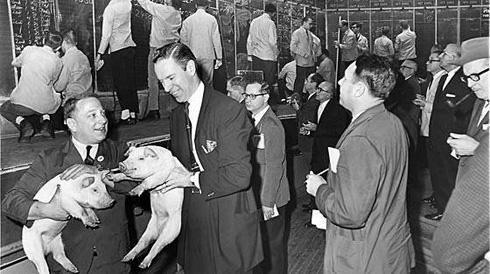A good book says there is nothing new under the sun and Gerry Ritz’s crippled Wheat Board certainly takes us back to the future, in 1922.
The way the real world works has not really changed much since that time. Sure, we have electronic technology that is smaller but then so do the same big four grain companies that ran the world’s grain then and mutations of which still run the world’s grain trade today. The only real difference is the internet has replaced the telegraph.
But this is all paper. Farmers have real wheat that must be physically moved to customers. Until Harry Potter waves his magic wand and makes distance disappear, that will be a problem.
One thing our Wheat Board did very well was price discriminate. As a single desk it can and does charge different customers different prices. It does so to gain advantages for farmers on transportation and prices. Without the single desk there will be a magic wand called ‘arbitrage.’ Now this is one of those words that sounds complex but hides a very simple fact. Like water, prices will fall to a more or less common level. That’s arbitrage at work. So without the single desk how could a voluntary wheat board price discriminate? Like the voluntary pools of the 1920s it will find itself competing to provide the arbitraged or the lowest common price.
Farmers now need to ask themselves another question. Without the Wheat Board allocating grain cars, will the railways be willing to send rail cars to their local elevator? How much influence does the local elevator agent and his company really have over the railways? Since the elevator companies will be paying the railways for car allocations out of the farmers’ money, how generous will they be with the payments? Without the Wheat Board, it is a private market and no one will ever really know, at least until they see their small grain cheque.

